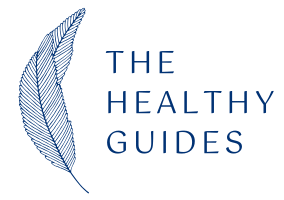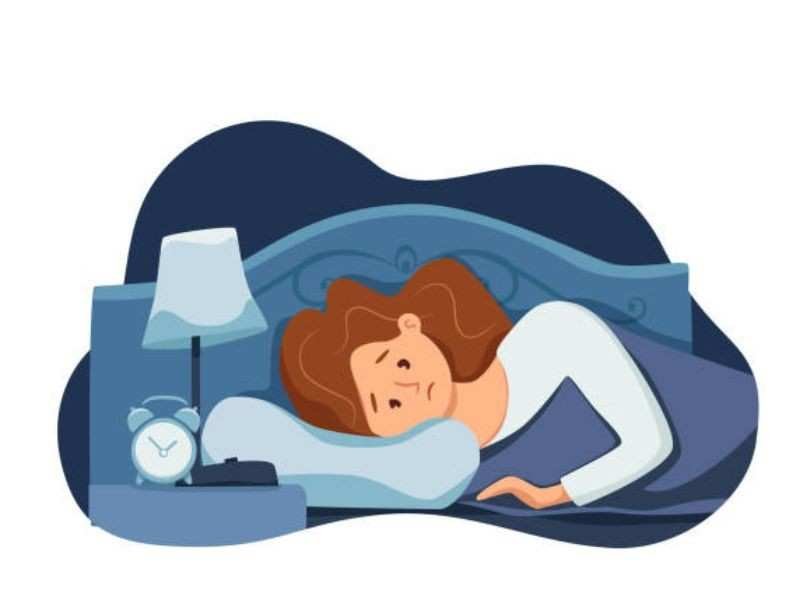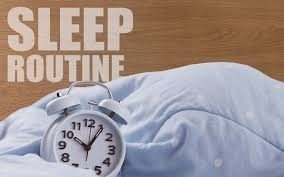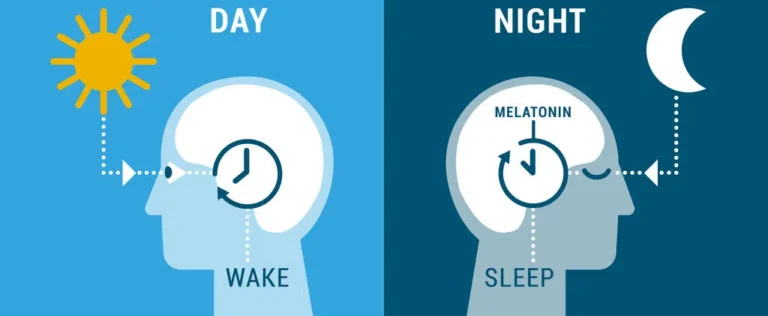Does Sleep Affect Health and Wellbeing ? Introduction: The Silent Pillar of Health
Sleep isn’t just “time off.” It’s one of the most powerful tools your body and mind have for maintaining sleep health and wellbeing. Yet, it’s often the first thing we sacrifice when life gets busy. Whether you’re burning the midnight oil for work, binge-watching a favorite show, or endlessly scrolling on your phone, sleep usually takes the hit.
But here’s the truth: sleep is non-negotiable. It’s as essential as food, water, and exercise. Without it, your brain, body, and mood all start to crumble. The question is—does sleep really affect health and wellbeing, or can we just “catch up” later? The short answer: yes, it affects everything. From your memory and emotions to your heart and immune system, sleep is the hidden engine of your wellbeing.
The Science of Sleep
Sleep Stages: More Than Just Shutting Your Eyes
When you fall asleep, your body doesn’t just switch off—it cycles through stages:
- Light Sleep – You’re drifting off, muscles relax, and your heartbeat slows.
- Deeper Sleep – Your body temperature drops, and you start repairing tissues.
- Deep Sleep – This is the “recharge” stage for physical recovery and immunity.
- REM Sleep – Your brain lights up, dreams happen, and memories get stored.
Miss out on deep sleep, and your body won’t fully recover. Miss out on REM, and your brain struggles with memory, focus, and creativity.
Circadian Rhythm: Your Inner Clock
Your body is basically running on an internal clock that resets every 24 hours—this is called the circadian rhythm. It’s like nature’s built-in scheduler, quietly dictating when you feel alert, when your body temperature rises and falls, and even when hormones like melatonin (the sleepy hormone) and cortisol (the wake-up hormone) get released. Keeping this rhythm balanced is key to maintaining sleep health and wellbeing, since even small disruptions can throw off your energy, mood, and focus.
When your circadian rhythm is aligned, sleep feels almost effortless—you get tired in the evening, sleep deeply, and wake up refreshed. But when it’s out of sync? That’s when the trouble begins.
Things that throw it off include:
- Late-night screen time 📱: Blue light from phones, tablets, and TVs tricks your brain into thinking it’s still daytime, suppressing melatonin and making it harder to fall asleep.
- Irregular work shifts ⏰: Night shifts or frequently changing schedules confuse your body’s clock, so it doesn’t know when to be awake or asleep.
- Staying up too late 🌙: Regularly pushing bedtime later shifts your internal rhythm forward, which can leave you groggy in the mornings (hello, “social jet lag”).
Over time, a disrupted circadian rhythm can lead to chronic fatigue, poor focus, mood swings, and even long-term health issues like obesity, diabetes, and heart disease. On the flip side, keeping your rhythm steady—by waking and sleeping at consistent times, and getting natural daylight during the day—can make falling asleep and staying asleep much easier.
Sleep and Physical Health
Building Your Immune Defense
Getting sick more often when you’re exhausted? That’s no coincidence. Quality sleep is a core part of sleep health and wellbeing, because it helps your body release infection-fighting proteins called cytokines. Without enough rest, your immune defenses weaken, leaving you more vulnerable to colds, flu, and other illnesses.
Protecting Your Heart
Poor sleep raises stress hormones, messes with blood pressure, and makes your heart work harder. People who sleep less than six hours most nights have almost double the risk of heart disease and stroke.
Managing Weight and Metabolism
When you don’t sleep well:
- Hunger hormone (ghrelin) spikes.
- Satiety hormone (leptin) drops.
- Cravings for sugar and carbs go through the roof.
The result? Late-night snacking, weight gain, and a higher risk of type 2 diabetes.
Sleep and Longevity
Research shows people who consistently sleep between 7–9 hours live longer, healthier lives. Less than 5 hours or more than 10 on a regular basis can shorten your lifespan. Balance is everything.
Sleep and Mental Health
Sleep and mental health are deeply connected, almost like two sides of the same coin. When you sleep well, your brain has the chance to regulate emotions, process experiences, and restore balance to stress-related hormones. But when sleep is cut short or disrupted, the opposite happens—your mood dips, irritability rises, and anxiety feels harder to manage. In fact, chronic sleep problems are strongly linked to conditions like depression, anxiety disorders, and even burnout. The good news? Focusing on sleep health and wellbeing often leads to noticeable improvements in mental health. It’s why therapists and doctors frequently recommend better sleep routines alongside counseling or medication. Simply put: when your nights are restful, your days become emotionally steadier, clearer, and more resilient.
Sleep Impact on Mood and Anxiety
Ever notice how everything feels ten times harder when you’re tired? Lack of sleep overstimulates the amygdala—the part of your brain that controls emotions. The result? Irritability, mood swings, and heightened anxiety. Prioritizing sleep health and wellbeing helps keep emotions balanced and stress in check, making everyday challenges feel much more manageable.
Sleep Deprivation Effect on Memory
Sleep is when your brain files away memories like a librarian organizing books. Without it, things don’t get stored properly. That’s why pulling an all-nighter before an exam usually backfires—you can’t remember what you studied.
Can Better Sleep Help Depression?
Absolutely. Sleep and depression are tangled together. Poor sleep makes depression worse, and depression makes sleep harder. But the good news? Focusing on sleep health and wellbeing can significantly reduce depressive symptoms. Therapists often treat sleep issues first because improving sleep habits helps everything else fall into place.
Why Do I Feel Anxious After Poor Sleep?
If you wake up feeling anxious after a rough night, you’re not alone. Lack of sleep messes with brain chemicals like serotonin and dopamine while cranking up cortisol—the stress hormone. Your brain literally starts the day in “panic mode,” even if nothing is wrong.
How Sleep Cleans the Brain (The Glymphatic System)
Here’s a mind-blowing fact: your brain has its own cleaning crew, and they only clock in when you’re asleep.
It’s called the glymphatic system, and during deep sleep, it flushes out waste products like beta-amyloid (a protein linked to Alzheimer’s). If you cut your sleep short, your brain can’t finish the cleanup—potentially raising your risk of memory problems later in life.
So yes, sleep literally washes your brain.
Sleep and Wellbeing
Productivity and Focus
Sleep-deprived brains make more mistakes and solve problems slower. On a large scale, this costs businesses billions in lost productivity every year.
Relationships and Social Life
Ever snapped at someone just because you were tired? Poor sleep lowers empathy, patience, and communication skills. Over time, it can strain relationships with partners, friends, and coworkers.
Energy and Motivation
Without rest, even simple tasks feel overwhelming. You’re less motivated to exercise, cook healthy meals, or pursue hobbies—creating a cycle of fatigue and unhealthy habits.
Common Sleep Disruptors
- Technology: Blue light from screens tricks your brain into thinking it’s daytime.
- Caffeine & Alcohol: Coffee lingers in your system for hours, and while alcohol might knock you out fast, it ruins deep sleep.
- Stress & Overthinking: Racing thoughts can keep you awake even when your body is begging for rest.
How Much Sleep Do We Really Need?
- Adults: 7–9 hours
- Older adults: 7–8 hours
- Teens: 8–10 hours
- Kids: 9–11 hours
- Infants & toddlers: 14–17 hours
Anything under 6 or over 10 regularly? That’s a red flag.
Myths About Sleep
- “I’ll sleep when I’m dead.” Truth: You’ll get there faster if you skip sleep.
- “Some people only need 4 hours.” Truth: That’s less than 1% of the population. The rest of us suffer.
- “I can catch up on weekends.” Truth: Weekend recovery helps a little, but it doesn’t erase long-term damage.
Tips for Better Sleep
🕰️ Stick to a Consistent Schedule
Your body loves routine. Going to bed and waking up at the same time—even on weekends—trains your internal clock (circadian rhythm) to know when it’s sleep time and when it’s go time. Think of it as setting your body’s “software” on auto-update. If you’re always changing sleep times, your brain never knows if it should be in work mode or recharge mode. Consistency = deeper, better-quality sleep.
🌙 Keep Your Bedroom Cool, Dark, and Quiet
Your sleep space should feel like a cozy cave. A cool temperature (around 65–68°F / 18–20°C) signals your body to wind down. Darkness helps melatonin (your natural sleep hormone) do its job. And quiet? That’s non-negotiable—if silence isn’t an option, white noise machines or earplugs work wonders. Basically, you’re setting the stage for your body to say: “Yep, it’s sleep time.”
☕ Cut Caffeine After Lunch
Caffeine has a sneaky long half-life (6–8 hours), meaning that afternoon latte may still be buzzing around your system at bedtime. Cutting coffee, tea, soda, and even dark chocolate after lunch helps your body naturally get sleepy when it should. Save that morning coffee for your productivity kick, but let your afternoon be caffeine-free so your pillow doesn’t turn into a staring contest.
📖 Try Relaxing Rituals Before Bed
Give your body a bedtime “cue” that it’s time to unwind. This could be reading a book (yes, a paper one—blue light-free), doing some light stretches, journaling, or even meditating for a few minutes. Rituals create signals for the brain that say: “We’re shifting gears now.” Over time, your brain will start associating these small habits with relaxation and sleep.
📝 Write Down Worries or To-Dos
Ever laid in bed thinking of everything you need to do tomorrow—or replaying awkward conversations from 2014? You’re not alone. A simple fix: keep a notepad by your bed. Write down tasks, worries, or reminders before you lie down. This offloads mental clutter, telling your brain: “Don’t worry, it’s on paper—we’ll handle it later.” Sleep becomes way easier when your mind isn’t running a midnight board meeting.
Special Sleep Disorders
Sometimes poor sleep isn’t just lifestyle—it’s medical. Conditions like insomnia, sleep apnea, restless leg syndrome, and narcolepsy can seriously impact health and need professional care.
The Bigger Picture
Sleep affects not just individuals, but whole communities. Students learn better when they’re well-rested. Workers are safer and more productive. Even the economy benefits when people get enough sleep.
Conclusion: Sleep as Your Secret Superpower
Sleep isn’t wasted time—it’s how your body and mind recharge, repair, and prepare for tomorrow. Whether it’s your mood, memory, or long-term health, quality sleep is the foundation for a better life.
So next time you’re tempted to push bedtime back, remember: you’re not just choosing rest—you’re choosing resilience, focus, and wellbeing.
Eating in sync with your body clock doesn’t just help your stomach — it also supports a calmer, more focused mind. If you want to explore more ways to care for your mental wellbeing, check out our full guide on practical tips for better mental health.
For more tips and support, visit our Facebook page.







